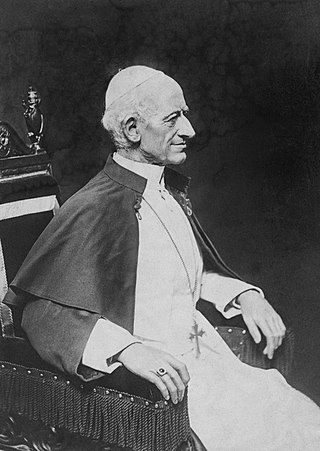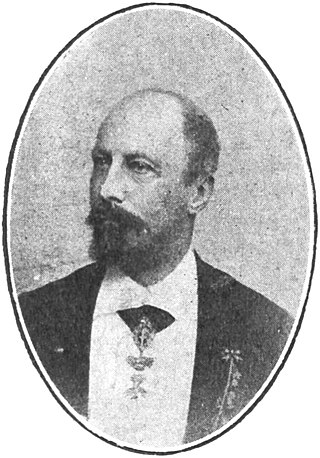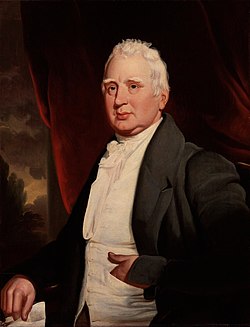
Christian democracy is a political ideology inspired by Christian social teaching to respond to the challenges of contemporary society and politics.

Rerum novarum, or Rights and Duties of Capital and Labor, is an encyclical issued by Pope Leo XIII on 15 May 1891. It is an open letter, passed to all Catholic patriarchs, primates, archbishops and bishops, that addressed the condition of the working classes.

Joseph Hilaire Pierre René Belloc was a Franco-English writer and historian of the early 20th century. Belloc was also an orator, poet, sailor, satirist, writer of letters, soldier, and political activist. His Catholic faith had a strong effect on his works.
Quadragesimo anno is an encyclical issued by Pope Pius XI on 15 May 1931, 40 years after Leo XIII's encyclical Rerum novarum, further developing Catholic social teaching. Unlike Leo XIII, who addressed the condition of workers, Pius XI discusses the ethical implications of the social and economic order. He describes the major dangers for human freedom and dignity arising from unrestrained capitalism, from socialism, and from communism as practised in Russia. He also calls for the reconstruction of the social order based on the principles of solidarity and subsidiarity.
This is a chronological bibliography of books and a general bibliography of articles by the author Hilaire Belloc. His books of verse went through many different editions, and are not comprehensively covered.
Arthur Joseph Penty was an English architect and writer on guild socialism and distributism. He was first a Fabian socialist, and follower of Victorian thinkers William Morris and John Ruskin. He is generally credited with the formulation of a Christian socialist form of the medieval guild, as an alternative basis for economic life.
Catholic social teaching (CST) is an area of Catholic doctrine which is concerned with human dignity and the common good in society. It addresses oppression, the role of the state, subsidiarity, social organization, social justice, and wealth distribution. CST's foundations are considered to have been laid by Pope Leo XIII's 1891 encyclical, Rerum novarum, which advocated distributism. Its roots can be traced to Catholic theologians such as Thomas Aquinas and Augustine of Hippo. CST is also derived from the Bible and cultures of the ancient Near East.
G.K.'s Weekly was a British publication founded in 1925 by writer G. K. Chesterton, continuing until his death in 1936. Its articles typically discussed topical cultural, political, and socio-economic issues yet the publication also ran poems, cartoons, and other such material that piqued Chesterton's interest. It contained much of his journalistic work done in the latter part of his life, and extracts from it were published as the book The Outline of Sanity. Precursor publications existed by the names of The Eye-Witness and The New Witness, the former being a weekly newspaper started by Hilaire Belloc in 1911, the latter Belloc took over from Cecil Chesterton, Gilbert's brother, who died in World War I: and a revamped version of G. K.'s Weekly continued some years after Chesterton's death by the name of The Weekly Review.
IHS Press is a publishing house based in Virginia that is designated as a hate group by the Southern Poverty Law Center (SPLC).
Centesimus annus is an encyclical which was written by Pope John Paul II in 1991 on the hundredth anniversary of Rerum novarum, an encyclical issued by Pope Leo XIII in 1891. It is part of a larger body of writings, known as Catholic social teaching, which trace their origin to Rerum novarum and aim to relate the teachings of Jesus to the industrial age.
Graves de communi re is an encyclical written by Pope Leo XIII in 1901, on Christian Democracy. It is part of a larger body of writings known as Catholic social teaching, that trace their origin to Rerum novarum which was issued by Pope Leo XIII in 1891. While reaffirming the Church's opposition to individualistic liberal capitalism, it also denied that the new ideals of Christian Democracy were an endorsement of the principles of a democratic political system. Leo also attacks socialism within the work, referring to it as a "harvest of misery" .
Octogesima adveniens is the incipit of the 14 May 1971 Apostolic Letter addressed by Pope Paul VI to Cardinal Maurice Roy, president of the Pontifical Council for the Laity and of the Pontifical Council for Justice and Peace, on the occasion of the eightieth anniversary of Pope Leo XIII's encyclical Rerum novarum. Generally known as A Call to Action on the Eightieth Anniversary of Rerum novarum, it is an Apostolic Letter which discusses themes such as securing democratic foundations in society.

The Servile State is a 1912 economic and political treatise by Hilaire Belloc. It serves primarily as a history and a critique of capitalism and socialism. The "servile state" that Belloc describes is a state in which the proletariat, a majority of civil society dispossessed of the means of production, is compelled by positive law to work for those possessed of the means of production. Belloc believed that capitalism was a fundamentally unstable and transitory state of affairs, viewing it as the usurpation of the natural development of property and societal norms. While Belloc states that socialism – which he generally refers to as "collectivism" – is an alternative to capitalism, he contends that it will also necessarily lead to the servile state, albeit in a different manner.
Third Ways: How Bulgarian Greens, Swedish Housewives, and Beer-Swilling Englishmen Created Family-Centered Economies – and Why They Disappeared is a book which looks at twentieth century alternatives to unrestricted capitalism on the one hand, and totalitarian systems such as communism, socialism, and fascism on the other. It was written by Allan C. Carlson and published by ISI Books in 2007.
Social teachings of the papacy encompass papal views described in social encyclicals and other papal communications, beginning with Rerum novarum, Pope Leo XIII's encyclical of 1891.
Catholic social activism in the United States is the practical application of the notions of Catholic social teaching into American public life. Its roots can be traced to the 19th century encyclical Rerum novarum of Pope Leo XIII.
Subsidiarity is an organizing principle that matters ought to be handled by the smallest, lowest or least centralized competent authority. Political decisions should be taken at a local level if possible, rather than by a central authority. The Oxford English Dictionary defines subsidiarity as the idea that a central authority should have a subsidiary function, performing only those tasks which cannot be performed effectively at a more immediate or local level.
Christian corporatism is a societal, economic, or a modern political application of the Christian doctrine of Paul of Tarsus in I Corinthians 12:12-31 where Paul speaks of an organic form of politics and society where all people and components are functionally united, like the human body.

The modern welfare state has been criticized on economic and moral grounds from all ends of the political spectrum. Many have argued that the provision of tax-funded services or transfer payments reduces the incentive for workers to seek employment, thereby reducing the need to work, reducing the rewards of work and exacerbating poverty. On the other hand, socialists typically criticize the welfare state as championed by social democrats as an attempt to legitimize and strengthen the capitalist economic system which conflicts with the socialist goal of replacing capitalism with a socialist economic system.

Charles-Humbert-René de La Tour du Pin Chambly de La Charce, was a French military officer, politician and social reformer.










